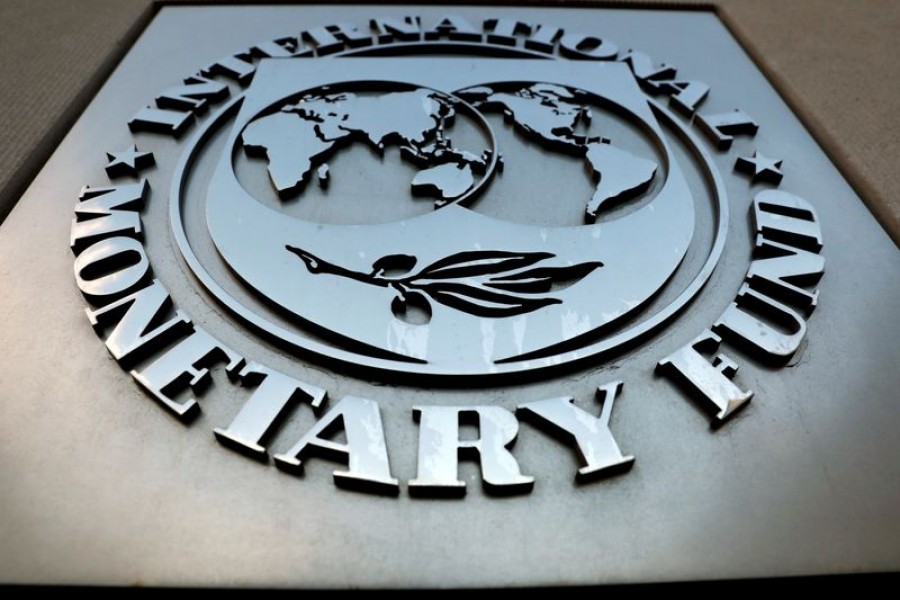Negations on a US$4.5-billion budget-support credit Bangladesh seeks from the International Monetary Fund open soon as an IMF mission arrives here this week for a firsthand view of the country's creditworthiness.
An IMF executive in a press briefing Saturday spoke in detail about Bangladesh's approach for the credit and its economic situation, especially inflation, currency depreciation, growth prospect and the like.
"We are currently preparing for negotiation mission, for first negotiation mission to Bangladesh, which will start next week," said Anne-Marie Gulde, Deputy Director, Asia and Pacific Department at the IMF.
"We are also using the current period of the authorities here to already start discussing some of the issues that have come up," she said while briefing journalists at the IMF headquarters.
The Fund shared the transcript of the press briefing on its website.

Bangladesh has already sought the budgetary support from the IMF to minimize its fiscal deficit-at this trying time for all across the globe for geopolitical and economic volatility.
Mr Gulde also said: "We expect 7.2 per cent of GDP growth, but there are global headwinds that are quite significant.
"Bangladesh is an export-dependent economy, and with headwinds in its major markets, our forecast for growth next year is 6.0 per cent."
They also have noticed the taka having depreciated about 20 percent. "Reserves have gone down. They're still at a comfortable level, but the direction has been towards going down," the IMF Deputy Director said about the downside risk.
Meanwhile, The World Economic Outlook has cut Bangladesh's economic growth forecast to 6.0 per cent for fiscal year (FY) 2022-23 from its earlier projection of 6.7 per cent.
In its latest WEO, the IMF downgraded the projection of its April forecast of 6.7-percent growth citing high energy and food prices, inflation, higher interest rates, and the Russia-Ukraine war.
Gulde on Saturday said: "We are pleased that the authorities have been proactive in engaging with the IMF discussing an economic program that will contain measures to stabilize the economy and to avoid a further downturn in the Bangladesh economy."
Meanwhile, Director of the Asia and Pacific Department Krishna Srinivasan in his speech said the IMF has identified three risks--a significant tightening of global financial conditions, the Ukraine-Russia war, and Chinese economy's uncharacteristic and sharp slowdown in growth.
He said: "With respect to the April WEO, growth forecasts for Asia and the Pacific are being downgraded by 0.9-percentage points in 2022 and 0.7-percentage points in 2023. So, growth in 2022 and 2023 is projected at 4.0 and 4.3 percent, respectively."
The IMF director advised the Asia-Pacific region tight monetary policy, and the fiscal consolidation to continue.
The higher inflationary pressure has been driven by rising food prices, particularly in Asian emerging economies, but also reflects higher core inflation as the region recovers and output gaps close.
"We have seen many Asian currencies depreciate quite sharply. The tightening of U.S. monetary policy has led to widening interest-rate differentials, and this has been a main factor driving depreciation across Asia this year. The war in Ukraine has also contributed by leading to a deterioration of the terms of trade for many countries in the region," Mr Srinivasan said.
He notes that Asia is now "the largest debtor in the world besides being the biggest saver, and several countries are at high risk of debt distress. Public and private debt dynamics are already worse following the pandemic because of slower growth, rising rates, and higher debt levels."
The IMF executive predicts that large depreciations and rising interest rates could trigger financial stress in countries with high leverage among non-financial corporates and households as well as unhedged balance sheets and those facing refinancing risks.
"If interest rates rise substantially, this would raise the fiscal balance needed to stabilize debt, crowding out fiscal space for other priorities," Mr Srinivasan says.


